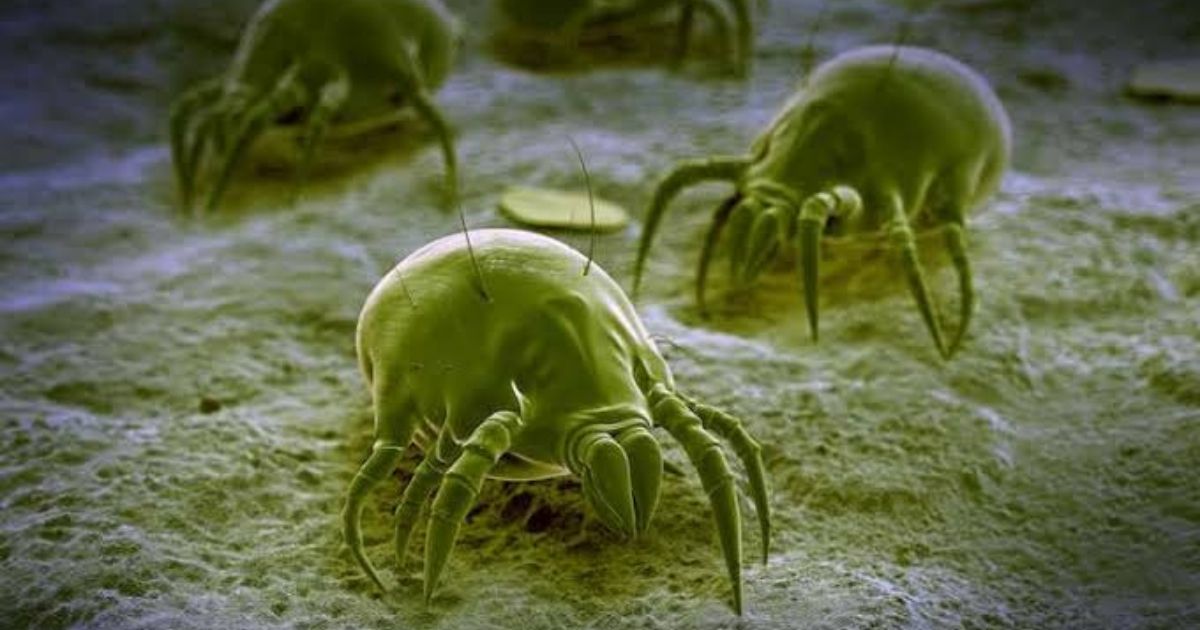It’s easy for us to wash our clothes when the hamper is full and we have nothing to wear. We may clean the kitchen counter after washing the dishes. However, changing sheets often seems like a daunting task, especially for men. In one survey, 55% of single men aged 18-25 said they only changed their sheets four times a year.

A third of your life is spent in bed. So, it’s only reasonable to make clean bed linens a priority. Leaving your sheets unwashed exposes you to fungi, bacteria, pollen, and animal dander that live on sheets and bedding. Biological secretions, sweat, and skin cells are also found on sheets.
Here are 5 ways that your dirty bedsheets could harm your health:
1. You will be sleeping with tiny critters – dust mites
Dust mites love to live in sheets, mattresses, and other upholstered surfaces where dust collects. In one night, you shed roughly 15 million skin cells, which dust mites eagerly devour. The more food these critters have, the more they reproduce and multiply. So if you don’t wash your sheets, you’re sleeping with these tiny critters.
2. It can trigger your allergies and asthma
Now it gets worse for the 20 million Americans with dust allergies. Allergies to dust mites and their feces cause itchy eyes, runny noses, and other cold-like symptoms. Even if you don’t have allergies, dirty sheets can cause a stuffy nose and sneezing.
Dust mite and pet dander allergies can trigger asthma. Dirty bed linens can cause daytime difficulty breathing and nighttime difficulty sleeping.
3. You might contract athlete’s foot, yeast, and other skin infections
According to hygiene expert Lisa Ackerley, bacteria and fungus that collect in bedsheets over time can enter our bodies through open cuts, sores, and other skin breaks. Athlete’s foot, for example, is spread by contact with surfaces where the affected foot has been. Ringworm, jock itch, toenail fungus, and external yeast infections in various skin crevices are all spreadable via dirty sheets.
To put it simply, if your partner has an infection, they could spread it to you through the bed you share, especially if the sheets are old.
4. Acne or eczema could flare-up
According to dermatologist Dr. Elizabeth Tanzi, even if you clean your skin, bacteria can build up in the fibers of your sheets, causing whiteheads and patchy pimples. Dirty sheets rub against your skin while you sleep, causing skin irritation like eczema.
5. Worst-case scenario: You could end up in the hospital
If you don’t wash your linen, fungus and bacteria can grow on them. A typical pillow has up to 16 different fungus species and millions of fungal spores, according to one study. The most common, Aspergillus fumigatus, is dangerous. It can cause infection to your lungs and other organs.
In another study, it showed that unwashed pillowcases and sheets had up to 39 times more bacteria than pet-food bowls and several thousand times more bacteria than a toilet seat. One of the bacteria that collect in dirty bedsheets is Staphylococcus aureus. It is a bacteria that lives in the warm, moist areas of our body, and most of the time is harmless. However, if it gets into the bloodstream through a cut, it can cause everything from UTIs to skin boils, eye styes, cellulitis, and even MRSA, an antibiotic-resistant infection that can be fatal in some cases.
Leaving your sheets on for days can cause more harm than you think. Experts advise changing your sheets every seven to ten days, or more frequently if you’ve been sick, sleep naked, sweat a lot, don’t shower before bed, or have a pet. To kill mites and bacteria, wash your bedding in hot water and dry it in the dryer. So you can rest easy knowing you’re clean and comfortable.





